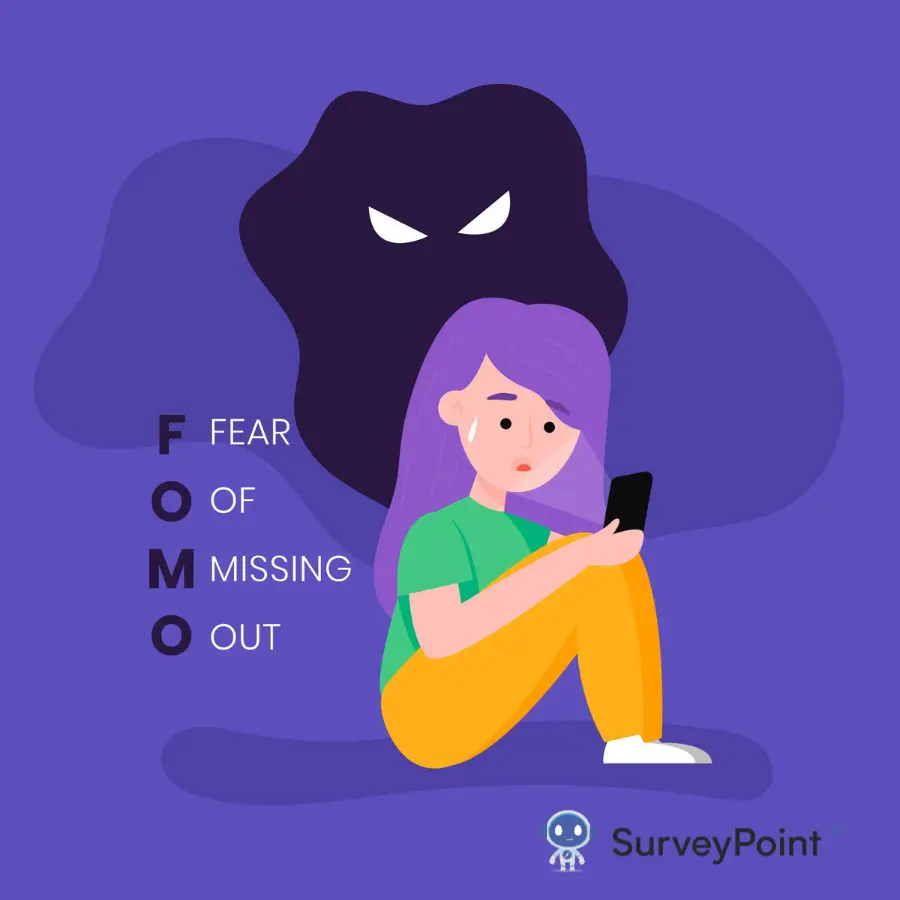
In a world dominated by hyperconnectivity and social media, the Fear of Missing Out (FOMO) has evolved into an omnipresent force shaping our daily lives. This comprehensive blog will explore the roots of FOMO, its profound impact on mental health, and provide actionable strategies to effectively navigate and mitigate its influence. By examining the historical context of FOMO, understanding its potential dangers, and offering practical tips for minimizing its effects, we aim to empower readers to reclaim control over their well-being in the face of a socially saturated world.
The Origin of FOMO and Its Impact on Health
To unravel the complexities of FOMO, we must trace its origin to the early 21st century when social media platforms took center stage in human interaction. As individuals began sharing curated snippets of their lives, a collective sense of inadequacy emerged, giving rise to the Fear of Missing Out on captivating experiences, social events, and opportunities.
Beyond its emotional toll, FOMO exerts a tangible impact on our physical health. The constant comparison to others and the pursuit of an idealized version of life contribute to heightened stress, anxiety, and, in severe cases, depression. Numerous studies have linked heavy social media use to increased feelings of loneliness and isolation, underscoring the pervasive influence of FOMO on our overall well-being.
A Brief Historical Overview of FOMO
Fear of Missing Out (FOMO) is a psychological phenomenon that has become increasingly prevalent in the digital age, driven by the rapid growth of social media and instant communication. The roots of FOMO can be traced back to the early 2000s, coinciding with the rise of platforms like Facebook, Twitter, and Instagram.
Before the advent of social media, people relied on more traditional means of communication, such as phone calls and emails, to stay connected with friends and family. The pace of information exchange was slower, and individuals were less exposed to the constant stream of updates on others’ lives. However, as social media platforms gained popularity, the way people interacted and shared experiences underwent a fundamental shift.
The term “Fear of Missing Out” was coined around 2004 by marketing strategist Dan Herman. FOMO describes the anxiety and uneasiness people feel when they believe others are participating in interesting events or activities without them. The constant flow of curated content on social media, showcasing the highlights of others’ lives, exacerbated this phenomenon. Users started feeling a heightened sense of social competition and the fear that they were not part of the exciting moments their peers were sharing.
The rise of smartphones further intensified FOMO by making social media accessible anytime, anywhere. Notifications and updates became constant companions, fostering a culture of instant gratification and comparison. The fear of being left out of social events or trends became a pervasive aspect of modern life.
Researchers began studying FOMO in the mid-2010s, exploring its impact on mental health and well-being. Studies suggested that individuals experiencing FOMO were more likely to feel anxious, stressed, and dissatisfied with their own lives. Social media platforms, initially designed to connect people, inadvertently contributed to a sense of disconnection and inadequacy.
Despite its negative connotations, FOMO has also influenced consumer behavior and marketing strategies. Businesses began leveraging FOMO to drive sales through limited-time offers, exclusive events, and the promotion of must-have experiences. The fear of missing out on a unique opportunity or product has become a powerful motivator for consumer engagement.
The Potential Dangers of FOMO
The dangers posed by FOMO are both insidious and far-reaching, impacting various facets of our lives. Understanding these risks is crucial for developing effective strategies to counteract its negative effects:
- Mental Health Strain: FOMO is intricately linked to increased stress, anxiety, and depression, fostering a distorted self-image and lower self-esteem.
- Social Isolation: Paradoxically, excessive engagement with social media can lead to feelings of isolation and loneliness, as genuine face-to-face interactions take a backseat.
- Impulsive Decision-Making: The fear of missing out on opportunities may drive impulsive decision-making, affecting everything from career choices to personal relationships.
- Strained Relationships: Constant comparison can strain relationships, leading to jealousy, resentment, and a diminished quality of interpersonal connections.
- Unrealistic Expectations: FOMO fosters unrealistic expectations about life, success, and happiness, often rooted in idealized portrayals on social media.
- Distracted Living: The constant urge to stay connected can result in distracted living, hindering personal growth, productivity, and the ability to be fully present in the moment.
- Inability to Enjoy the Present: FOMO fosters a mindset fixated on what is happening elsewhere, impeding the ability to appreciate and savor the present moment.
- Financial Consequences: FOMO-driven consumer behavior can lead to financial strain as individuals attempt to match a lifestyle portrayed on social media.
Minimizing FOMO: Practical Strategies for a Balanced Life
In the face of these potential dangers, it becomes imperative to develop practical strategies for minimizing FOMO and fostering a balanced, fulfilling life:
- Mindful Social Media Use: Limit time spent on social media, curate your online environment, and unfollow accounts that trigger feelings of inadequacy.
- Set Realistic Goals: Establish achievable goals based on personal values, shifting the focus from external expectations to intrinsic fulfillment.
- Cultivate Gratitude: Practice gratitude to counteract the negative effects of FOMO, shifting the focus from what’s lacking to what’s present in your life.
- Develop Offline Connections: Invest time in building meaningful connections offline, engaging in activities aligned with personal interests.
- Embrace JOMO (Joy of Missing Out): Shift your perspective from fearing what might be missed to appreciating the joy found in the present moment and the choices you make.
Conclusion
FOMO may be an inevitable part of modern life, but it doesn’t have to dictate our well-being. By understanding its origins, acknowledging its impact on health, and implementing practical strategies to minimize its influence, individuals can regain control over their lives. In a world dominated by hyperconnectivity, finding a balance between the virtual and the real is essential for cultivating a healthy and fulfilling existence. It’s time to unplug from the FOMO epidemic and reclaim agency over our lives in the pursuit of genuine happiness and connection.




